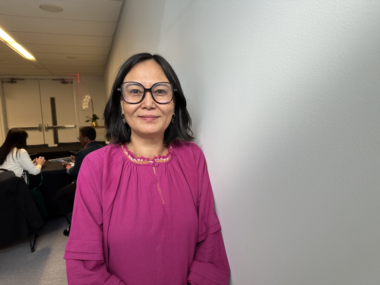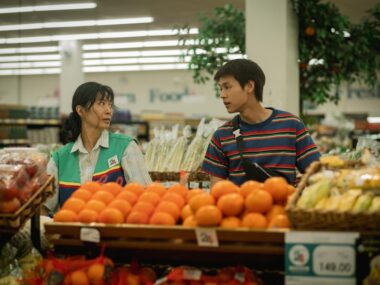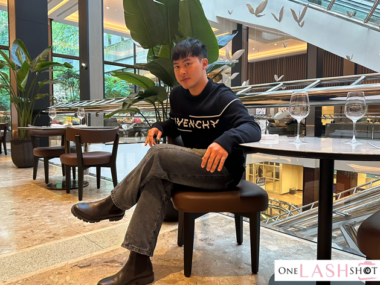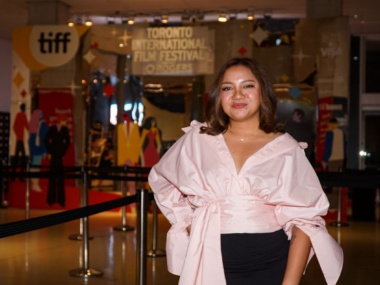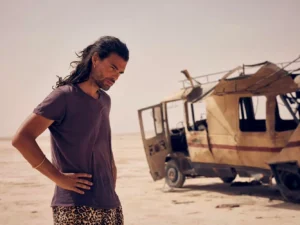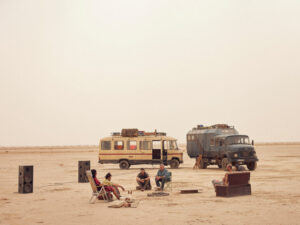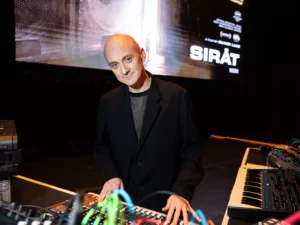From the world of documentary films to fiction films, Director Jasmin Gordon has done it all.
In addition to receiving the Princess Grace Foundation Award, an ITVS Grand Jury Prize, and two nominations from the International Documentary Association, her short films were shown at festivals such as SXSW, Festival Européen du Film Court de Brest, Encounters Short Film Festival, and AFI Docs.
Her first feature, The Courageous (2024), participated in the Torino Script Lab 2021 and made its international premiere in September 2024 at the Toronto International Film Festival. The film has already won the Critics’ Choice Award and Zurich Churches Film Prize at the Zurich Film Festival.
Marking her debut in fiction filmmaking with The Courageous, Jasmin treads the path of fragility through the delicately handled intimate narrative of a single mother raising three children while dabbling in the throes of poverty in an affluent society like Switzerland. The film stars actress Ophélia Kolb as the protagonist, ‘Jule’.
One Lash Shot had the opportunity to talk openly with Jasmin Gordon as she described her experience directing this film that dissects the realm of moral quandaries, basic ethics and societal stereotypes.

This is your feature film debut after a long career in documentary. So, what made you decide it’s time to make a movie for the big screen?
Yeah, that’s an interesting question.
I really think that throughout most of my life making a fiction film was something that I wanted to do but I think that I never sort of allowed myself to do it or I never thought that I was capable of doing it and I think in a way it’s nice that I had a long road to this film because I think it also changed how I made this film.
Also, the story that I’m telling with this film is quite different than I would have told at 25 or 35, I would have probably told a very different story.
So, I feel like this path that I took which maybe a longer path, also informed my work and made it what it is today. So, I don’t regret the time that it took me to get here.
You shot this movie about inequality in society, in Switzerland, which is one of the most affluent countries in the world. So, what made you select an idyllic town in the stunning Valais region of Switzerland, known for its proximity to Matterhorn and Alpine resorts, which is in contrast to the atmosphere you created within the movie?
It was important for me to talk about the fact that even in very affluent countries, we have people who really live in poverty. I mean, of course, it’s always relative, you know, what does poverty look like in Switzerland? What does it look like in Canada? There’s always something that has a different face, but it happens here as well.
And, it really is something that we don’t like to talk about— something that we try to sort of ignore and it was important for me to sort of address this and to put it on the big screen and to share with the world that even in very affluent countries we also have our problems.
The opening shot was pretty riveting. How did you go about directing that scene and the rest of the movie while simultaneously collaborating with scriptwriter Julien Bouissoux to bring the screenplay to life?
So, Julien, my co-writer, and I–developed this script over many years. And its sort of based on many different things– things from my life, but also a lot of fiction. So, we developed that little by little.
When the script was good enough– it took us quite a bit of time to get there– we needed to acquire the financing before we were able to start the shoot. So, it wasn’t in parallel form, it was really one after the other.
If I’m right, Ophélia is well-known for her role in Call My Agent. How did you go about selecting her and the remaining cast members— the three kids who had to play the lead roles alongside her?
So Ophélia is an actress that I really admire very much. And I knew that I needed to have a woman who brings a lot of warmth to this role because it’s a very complex female role. And she was the first person I brought into casting and also the last. Like I really fell in love with her right away and I knew that she was the right person. So, for me, it was very easy to select Ophélia as the main character.

For the three children, it was a bit more complex. We saw almost a hundred children in the casting process and we ended up going for these three because they really had something very special and something very deep and unique within each one of them. They were very close to their characters, so that’s why we chose these three.
And they’re from Switzerland as well?
Yes, the three children are Swiss and Ophelia is French.
You did provide some insight into Asperger’s syndrome and how society views it. What is the situation in Switzerland? Are people more accommodative of it?
No, actually I would say that in Switzerland we’re a bit behind. I feel like North America is much more advanced in terms of autism and neurodiversity in general and sort of accepting that as a part of humanity and something positive.
So, that was also another reason why I wanted to target the Swiss audiences because it’s something that we don’t talk about and that is more seen as sort of an illness or a problem, rather than more of a personality trait.
What about being a single mother in Switzerland? Is that something you would observe in Switzerland’s daily life, particularly within the poverty spectrum?
No, her struggle as a single mother in a very poor situation— that’s not very common in Switzerland. I mean, there are many people who have lives similar to this, but if you compare that to other countries, it’s a very small percentage of people. But that was another reason why I also wanted to talk about it.
There are a lot of comments that ring true within the movie. For example, when the gym instructor says a statement, ‘C’est ton passé, c’est pas mon passé’. So, in your opinion, how common is it for a society like that to misjudge a woman, especially a single mother, which is showcased through several incidents?
I mean, I think that women like ‘Jule’ are often judged very harshly because they project a lot of stereotypes. And I feel like often it’s not okay. And it’s not very correct.
So that’s something that I also want to talk about female figures in general, and specifically mothers who are sort of in this gray zone between morality and immorality.
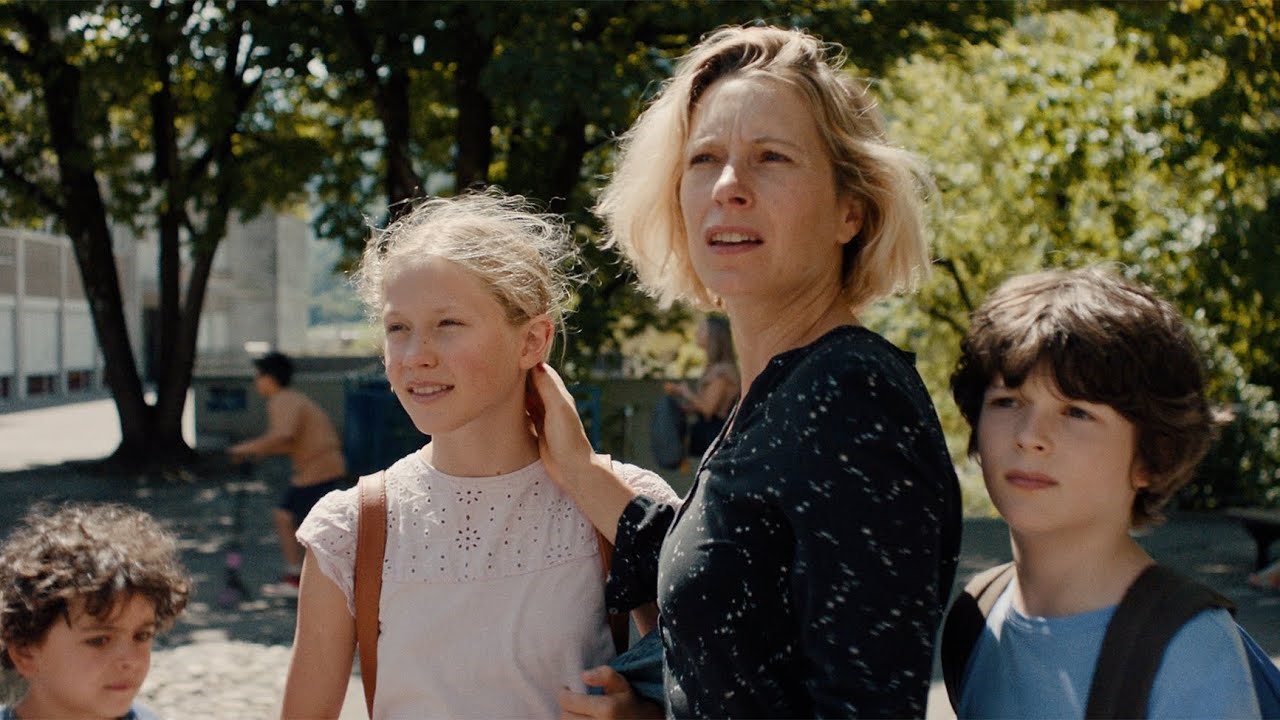
I also wanted to provoke a bit with this role to really sort of go to the limit of what people think is okay for a woman– specifically a mother– to do.
And Switzerland, you know, is a country that is very conventional. We’re very oriented towards the norm. People try to always be as upstanding as they can. And I think that there is a lot of judgment when it comes to people like ‘Jule’. So that was another reason why I felt like it was important to put this portrait on a big screen and to talk about this.
If it’s happening in real life, how do you think people should respond to such a situation? What would be the ideal situation?
I think that if we have more empathy in general with people, sort of as a rule to just be more empathetic to people in general, I feel like that probably would help a whole lot in all of our societies.
So that’s something that I really thought about a lot while making this film.
Like, what would the mother’s story be if people around her had been more empathetic– if they had lent her a helping hand along this path?
I think her story would be very different. So that really is something that’s important for me to talk about.
And just in general, the idea of being more courageous. That’s something that’s really important to me and that I wanted to also talk about through this film.
But as you portrayed within the film, the reality is quite different. Unfortunately, most people are quite calculative and indifferent. Do you believe the protagonist did a good job of handling the role of a single mother in such a situation? Do you think her actions were justified?
I think her actions are justified because I don’t know how many other options she had. But that doesn’t mean that I think that everything that she did is okay. I mean, there are a lot of things that she does that I think, maybe, there would have been a better way to solve this problem.
And especially her sort of tendency to lie about things, also with her children, that is something that I have a lot of issues with. But I also understand why she doesn’t.
Storytelling, creating the fantasy world.
Exactly.
In hindsight, what do you think was the main theme of this movie? There are moments when the children behave more like adults, especially the eldest girl. There’s inequality in societal wealth and status. There is thieving, which is technically justified. There is petty violence, in a way, when she hits the teacher, again justified. And of course, there is maternal love abundantly. So, what was the main message you were trying to deliver exactly? There are so many undertones here.
Yeah, for me, there is no main message. For me, there are many messages. I think it’s a film that is written also in many layers. If you see it two times or three times, you might see something different every time. And that has a lot to do with my co-writer, Julien, who’s very talented.
But yes, I mean, the themes that we’ve talked about, for example, this idea of being more courageous in all of our lives, even in the small decisions we make, and also the larger decisions we make in this political climate we live in, that’s really important to me.
What was the most challenging scene for you to direct within the movie?
I think the most challenging scene to direct was towards the end when the children climbed off the balcony. It doesn’t seem like it would be very complicated to direct, but it really was for many technical reasons.
That was the only scene that we had to reshoot, for example.
Which was your favorite scene in the movie to shoot?
I think my favorite scene is probably when the kids are dancing in the living room as that shot is very emotional. I think for me, that probably was the highlight. With all the cake which she stole.
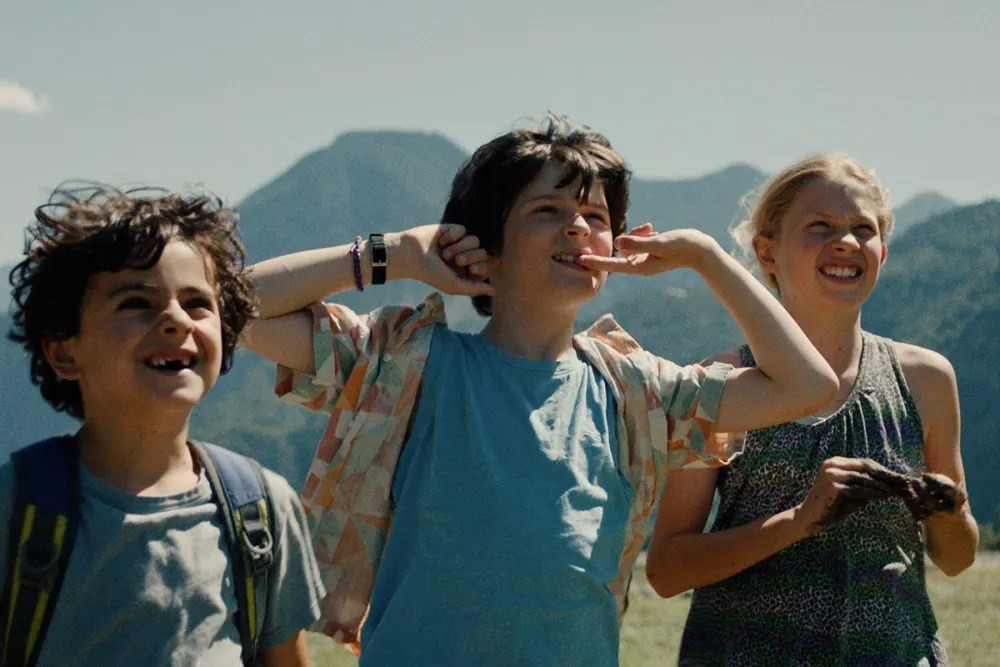
What’s next for you now? Are we going to see more documentaries or are we going to see your second feature film?
A second feature film. That’s what I’m working on now.
En français aussi? (English: Also in French?)
Yes. En français aussi. Yes. And maybe even a fiction series, but I’m definitely going more, you know, towards directing fiction filmmaking and less documentary.
Which genre are you looking to explore in your next project? A thriller perhaps or something similar to this, less dialogue, but a lot of things happening on the screen?
I think there’s space for both. The next feature is more of a portrait, but it has something, it’s much more of a lighter film with more undertones of comedy. So, it will be quite different, but still very close to a female character.
Then, I’m also really interested in thrillers and all the different types of genres. I mean, I’m very open.
Do you think it’s possible in today’s world to raise three children single-handedly? Perhaps not in such a poverty-stricken situation, but if slightly well-equipped financially. Do you think it’s feasible?
I think it depends a lot on where this person lives and what the situation is. But, of course, it’s alright. Many women have done this over centuries and have survived and raised wonderful children. Women are very strong and capable of doing that for sure.
But, in your opinion, does that affect the mental toll of the children?
Of course. I mean specifically being a single mom does not necessarily affect them in any way. I think it has more to do with how extreme is the situation you live in. If you are living in poverty like they are, if you have lots of other factors of stress, yes.
But I think many women have raised children alone and there was no negative effect on the children.
[Author’s Note: Merci beaucoup, Jasmin, d’avoir créé une histoire si incroyable et d’en avoir fait ton premier film!]

